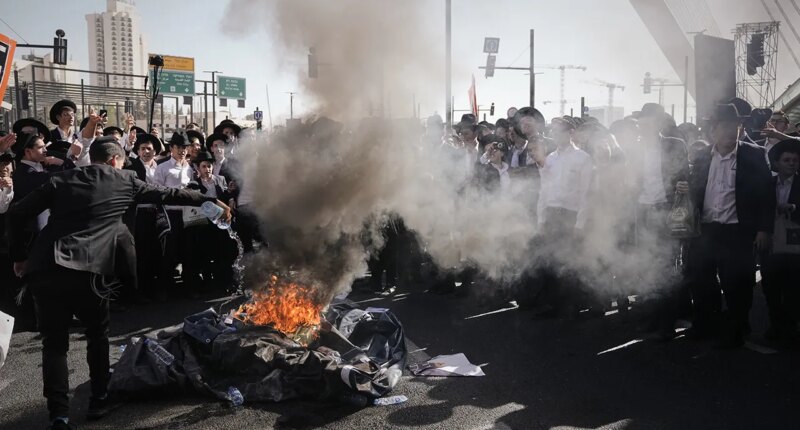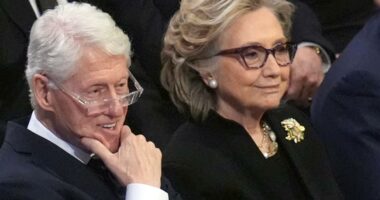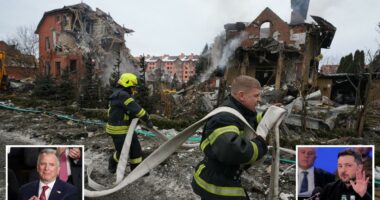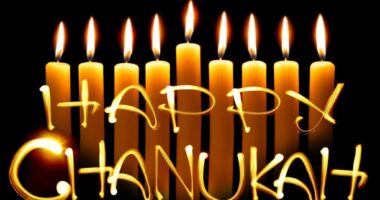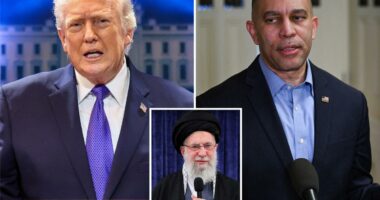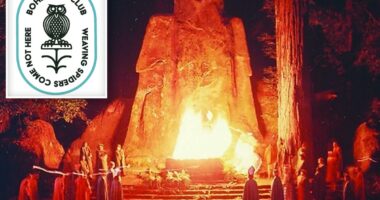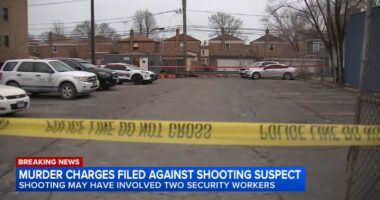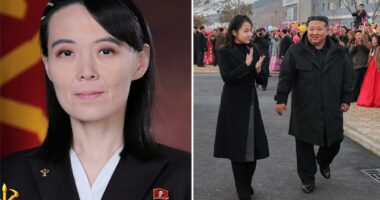Share this @internewscast.com
Tens of thousands protest military draft in Jerusalem
In a dramatic display of dissent, thousands of ultra-Orthodox men filled the streets of Jerusalem on Thursday, rallying against proposed military draft plans. This large-scale demonstration has not only underscored the deepening social rifts within Israel but also posed a significant challenge to Prime Minister Benjamin Netanyahu’s coalition government.
Approximately 200,000 ultra-Orthodox, or Haredi, protesters gathered in the capital, voicing their opposition to being conscripted into the Israel Defense Forces. The massive turnout led to clashes with police, resulting in dozens of injuries. According to Magen David Adom, Israel’s emergency service, 56 people were hurt during the confrontations, including a police officer who suffered injuries from stones hurled by some demonstrators.
This protest essentially brought Jerusalem to a standstill, with major roads into the city blocked by the flood of demonstrators. The situation escalated at times, as law enforcement officers attempted to clear the blocked highways and restore order amidst the chaos.
The core of the protest lies in the controversial exemption policy that allows ultra-Orthodox men, who dedicate themselves to full-time religious studies in seminaries, to bypass mandatory military service. This exemption has long been a point of contention, perceived by many Israelis as inherently unjust and a source of societal division.
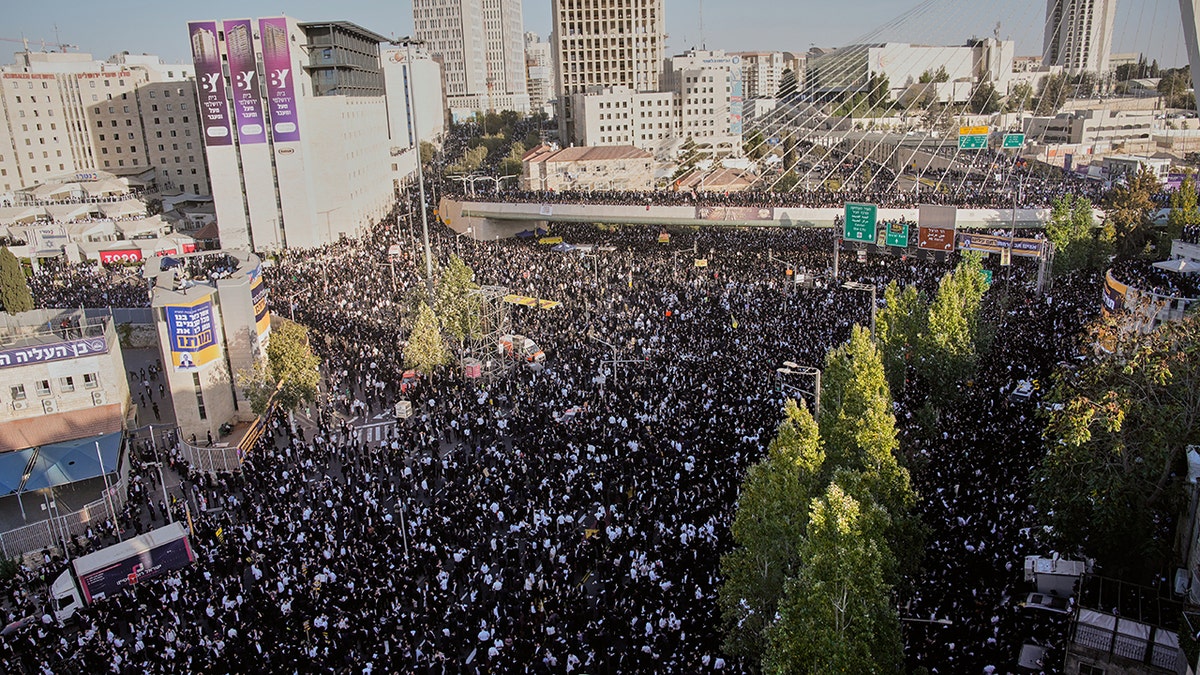
(Photo of Ultra-Orthodox Jews protesting against the military draft in Jerusalem on Thursday, Oct. 30, 2025, by Ohad Zwigenberg/AP Photo.)
At the heart of the unrest is a long-standing exemption that allows ultra-Orthodox men who study full-time in religious seminaries to avoid military service — a policy that many Israelis view as deeply unfair.
Military service is mandatory for most Jewish men and women, but Haredi Jews have historically been exempt, a privilege dating back to Israel’s founding. They argue that their way of life — centered around Torah study and religious community — is incompatible with full military service. They fear that conscription will undermine their religious identity, expose them to secular values and erode the distinct community structures they’ve built.
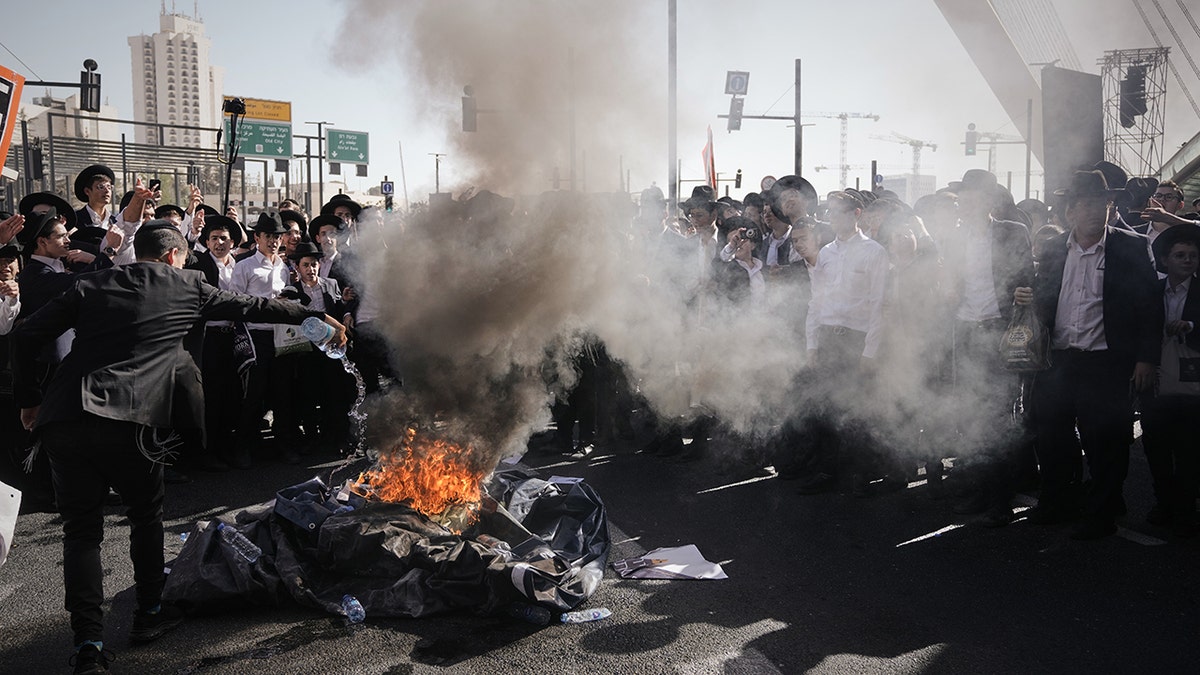
Ultra-Orthodox Jews protest against plans to force them to serve in the Israeli military, in Jerusalem, Thursday, Oct. 30, 2025. (Mahmoud Illean/AP Photo)
With Israel fighting wars on multiple fronts over the past two years, the military has faced growing manpower shortages, prompting renewed efforts to end the exemption. The Supreme Court ruled last year that the arrangement was unconstitutional, ordering the government to pass a new conscription law.

Israeli Prime Minister Benjamin Netanyahu joins other government ministers at a Plenum session of the Knesset, Israel’s Parliament, in Jerusalem, June 11, 2025. (Ronen Zvulun/Reuters )
That ruling has shaken Prime Minister Benjamin Netanyahu’s coalition. His ultra-Orthodox allies — the Shas and United Torah Judaism parties — quit the government in July, accusing him of betraying their religious base. Parliament has yet to agree on a compromise acceptable to both the Haredi leadership and the military.
Opposition leaders condemned the violence. Yair Lapid wrote on X, “If you can march in the streets, you can march in basic training and defend the State of Israel.” Benny Gantz added, referring to a video of a female reporter being attacked, “There is nothing Jewish about this behavior.”
